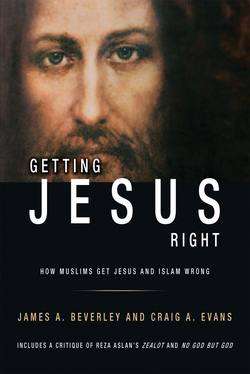Читать книгу Getting Jesus Right: How Muslims Get Jesus and Islam Wrong - James A Beverley - Страница 36
На сайте Литреса книга снята с продажи.
Jewish Zealotry in Old Testament Times and in the Time of Jesus
ОглавлениеThe Old Testament zealot par excellence is Phinehas. He makes his first appearance in Exodus 6, where he is identified as Aaron’s grandson (Exod 6:25; 1 Chr 6:4, 50; 9:20; Ezra 7:5). He next appears in Numbers 25, in the episode where many Israelites join Moabites and Midianites in worshipping the god (or “Baal,” presumably Chemosh; cf. Num 21:29) of Peor while they are encamped on the plain within sight of Mount Peor (cf. Num 23:28; 24:2; 31:16; Deut 3:29; 4:3; Ps 106:28). These activities, which involve sexual promiscuity and feasting in honor of the god of Peor, result in a plague. While Moses and others are weeping before the entrance of the Tent of Meeting, an Israelite man brings a Midianite woman into the camp. He does this in the very sight of the grieving Moses. The reader should infer that this man has no regard whatsoever for Moses or for Israel’s sacred covenant with God.
When Phinehas sees this outrage, he takes a spear, kills both the man and the woman, and so brings the plague to an end. The reader learns why when God tells Moses,
“Phinehas the son of Eleazar, son of Aaron the priest, has turned back my wrath from the people of Israel, in that he was jealous with my jealousy among them, so that I did not consume the people of Israel in my jealousy. Therefore say, ‘Behold, I give to him my covenant of peace; and it shall be to him, and to his descendants after him, the covenant of a perpetual priesthood, because he was jealous for his God, and made atonement for the people of Israel.’” (Num 25:11–13)
What is translated “He was jealous with my jealousy” could also be translated “He was zealous with my zeal.” So also in verse 13, “jealous for his God” could be translated “zealous for his God.” On account of this episode, Phinehas is remembered for his zeal. God gives this priest a “covenant of peace” and his descendants a “covenant of a perpetual priesthood.”
Phinehas reappears in the war with Midian (Num 31:1–12). He joins the army and is entrusted with the holy vessels and the trumpets (v. 6). Israel routs the kings of Midian, taking spoils and captives (vv. 7–12). Again Phinehas appears in Joshua 22, in which he is sent as an emissary of sorts to rebuke the tribes of Reuben, Gad and Manasseh (vv. 13–20). When the leaders of these tribes convince the priest of their fidelity, Phinehas is pleased and is able to give the rest of Israel a favorable report (vv. 30–34). Phinehas is mentioned later, in Judges 20, when readers are reminded that he used to stand before the ark of the covenant and minister (vv. 27–28). In his recounting of the principal priests in Israel’s early history, the Chronicler mentions Phinehas, saying, “Phinehas the son of Eleazar was the ruler over them in time past; the LORD was with him” (1 Chr 9:20).
Phinehas makes his final appearance in Hebrew Scripture in Psalm 106, a psalm of repentance that recalls and confesses the many instances of Israel’s sin and rebellion, including the aforementioned apostasy at Peor:
Then they attached themselves to the Baal of Peor,
and ate sacrifices offered to the dead;
they provoked the LORD to anger with their doings,
and a plague broke out among them.
Then Phinehas stood up and interposed,
and the plague was stayed.
And that has been reckoned to him as righteousness
from generation to generation for ever. (Ps 106:28–31)
Phinehas reappears in intertestamental literature and later Jewish writers. More will be said about him in the following section.
There are other acts of zeal recorded in the Old Testament. Out of his “zeal for the people of Israel and Judah” King Saul slaughtered the Gibeonites (2 Sam 21:2, harking back to Josh 9:3–15, where Israel had been deceived by the Gibeonites). Elijah recalls his zeal for God (1 Kings 19:10, 14), which among other things includes the defeat and destruction of the prophets of Baal (1 Kings 18:20–40). Jehu, newly crowned king of the northern kingdom of Israel, says to a companion, “Come with me, and see my zeal for the LORD” (2 Kings 10:16). He then kills every member of the family of Ahab, a king who earlier had ruled over Israel.
We cite these examples because the language of “zeal” and “zealous” appears. It is likely, however, that the violent deeds of a number of other figures would have been viewed in later times as acts of zeal for God and his Law. One thinks of Joshua and Caleb in the book of Joshua, many of the judges in the book of Judges, and the daring deeds of David and other righteous kings in the books of Samuel and Kings.
What is interesting is that most instances of zeal resulted in killing people. In other words, the writers of Israel’s ancient narratives that chronicle the history of the patriarchs, leaders and kings tend to reserve high praise for men and women of very bold action, even violent action. In short, to be zealous for God or for God’s Law often meant a willingness to die for it and, if necessary, to kill for it. This thinking takes a more definitive form in the intertestamental period and, not surprisingly, focuses on Phinehas the zealous priest.
